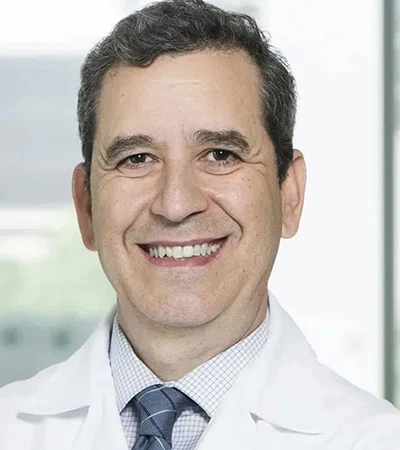

Hoping to Improve Resection Outcomes
Hoping to Improve Resection Outcomes
For cancers with tumors that can be surgically removed, surgical resection is the most common treatment option. Patients undergoing surgical tumor removal are often older with extensive comorbidities or have had chemotherapy or radiation. When combined with the complex nature of cancer resection surgeries (e.g., multi-visceral resections, blood loss and prolonged operation time), these factors often contribute to increased risk of post-operative morbidity and mortality.
The immediate post-operative period is when patients are at greatest risk of postoperative death or serious complications (DSC). Risk prediction and stratification, tailored interventions to reduce that risk, and standardization and alignment of postoperative care could potentially improve outcomes after major cancer surgery.
To investigate the efficacy of such an approach, Houston Methodist’s Nestor F. Esnaola, MD, MPH, MBA, Diane Harkins Modesett Chair, Dr. Mary and Ron Neal Cancer Center and member, Underwood Center for Digestive Health, worked with a team at the Fox Chase Cancer Center in Philadelphia on a randomized controlled trial (RCT) in patients undergoing major cancer surgery. Their study, “A Randomized, Controlled Trial Evaluating Perioperative Risk-Stratification and Risk-Based, Protocol-Driven Management After Elective Major Cancer Surgery”, on which Esnaola is co-first author, was published in the Annals of Surgery.
The team developed a novel, pragmatic, bundled intervention combining objective, preoperative and postoperative risk-assessment, as well as risk-based, escalating levels of care, monitoring, and co-management. “The primary objective of the study was to compare risk-based, protocol-driven management with the usual management and evaluate their impact on the 30-day rate of DSC after elective major cancer surgery. We also evaluated the effect of the intervention on specific complications and adverse events, health care utilization, health-related quality of life (HRQOL), disease-free survival (DFS) and overall survival (OS),” said Esnaola.

Nestor F. Esnaola, MD, MPH, MBA
The primary objective of the study was to compare a risk-based, protocol-driven management with the usual management and evaluate their impact on the 30-day rate of DSC after elective major cancer surgery. We also evaluated the effect of the intervention on specific complications and adverse events, health care utilization, health-related quality of life, disease-free survival and overall survival.
Nestor F. Esnaola, MD, MPH, MBA
Diane Harkins Modesett Chair, Dr. Mary and Ron Neal Cancer Center and member, Underwood Center for Digestive Health at Houston Methodist
The study enrolled 1,529 patients between August 2014 and June 2020 and randomly allocated them to the study arms: the intervention arm had 738 patients, and the control arm had 732 patients. Patients were stratified/randomized to risk-based escalating levels of care, monitoring, and co-management vs usual management. The 30-day DSC rate with the intervention was 15.0% and in the control arm it was 14.1%. The 30-day rates of complications or adverse events, postoperative length of stay, rate of discharge to home or 30, 60, or 90-day HRQOL or rates of hospital readmission or receipt of anti-neoplastic therapy remained unchanged between the study arms. The 48-month follow-up results were also similar.
The study demonstrated that risk-based, protocol-driven management did not reduce 30-day rate of DSC after elective major cancer surgery compared to the usual management, nor improve postoperative health care utilization, HRQOL, or cancer outcomes. “Further trials are needed to identify cost-effective, tailored perioperative strategies to better optimize outcomes after major cancer surgery,” said Esnaola.








